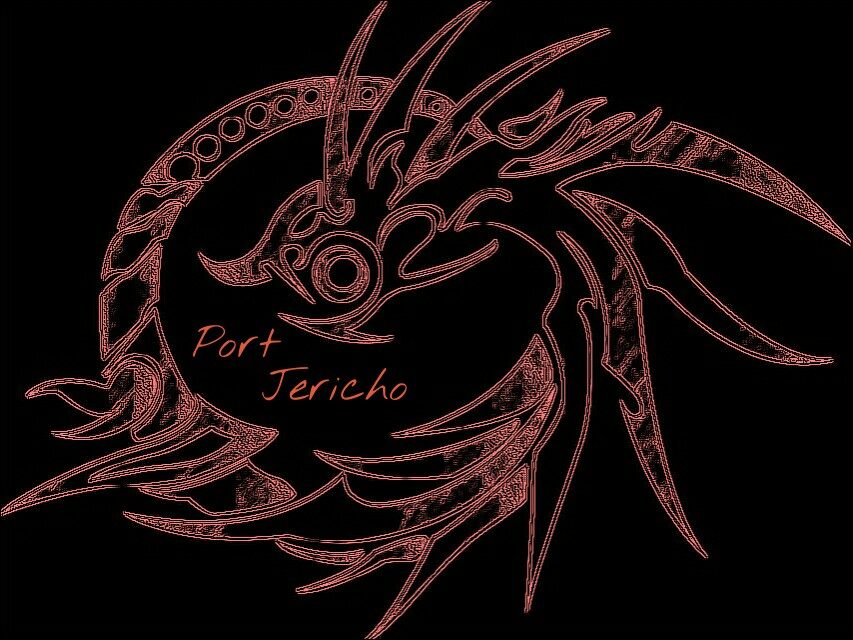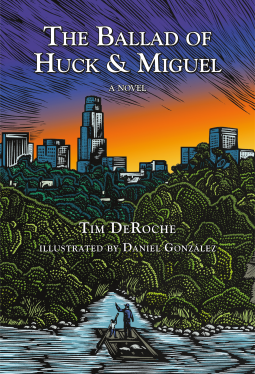
A brilliant reweaving of a most beloved Twain tale.
In this new version, Huck and his father travel to California on a secret mission. Huck is an explorer, and living with an abusive father, he takes every chance he gets to run away. He does so in CA, and learns his father is there to do a drug deal. A moment of bravery enables Huck and his friend Tom Sawyer to intercede when things go awry. Because if them, the drug lord and his buddies are captured.
Unfortunately, Pap was not captured. Thwarted in his plans to get rich from drugs, Pap shows up again and again, even after Huck has been fostered out, and he’s mad for blood. One encounter sends Huck fleeing down a great concrete-banked river with Miguel, an illegal immigrant accused of a savage attack perpetrated by Pap. Thus begins a harrowing adventure for Huck and Miguel, as they try to flee Pap’s rage, and get Miguel to a safe place.
If you couldn’t have guessed from the title, The Ballad of Huck and Miguel is a reimagined Adventures of Huckleberry Finn by Mark Twain. This is a grittier Huckleberry Finn, set in urban LA of modern times. Interspersed through the book are beautiful illustrations One of Twain’s most well-known, and scandalous works, Huckleberry Finn shows up on banned book lists quite a bit and I can see Huck & Miguel joining it.
And what higher praise can you give a story, truly? To ban something means you feel threatened by it, by the thinking it might prompt. Like the original Twain story, DeRoche deals with themes of race, the corrupting influence of civilisation, and superstition. The theme of immigration takes the place of slavery, turning the story into the perfect allegory against the current US immigration policies, and overall attitude of the country.
Huck is raised poor and uneducated (yet possesses far more wisdom than many PhD candidates). His father is a violent, abusive man who feels entitled, and who adheres to the belief that “Mexigrants” are taking over the country. Miguel humanises the “Mexigrants”, helping Huck realise they’re just people wanting to live and be free too, and are not deserving of the anger and hatred of the entitled masses who believe they are ruining the country. Huck himself seems to have an inner moral compass that supports human rights, and honourable action, so it doesn’t take much for him to realise his father’s rants against the “Mexigrants” was wrong.
The colloquial language invites us even deeper into Huck’s world, and his personality. I loved to see Huck shedding his past, and reassessing everything he’d been taught. Snakeskins show up twice, and play into the superstition theme carried over from the original, but they are a perfect metaphor for the changes Huck himself is going through. He is sloughing off an old life, and tainted perspectives like a snake sheds its skin and is, in a sense, ‘reborn’. That his ‘bully ‘venture’ takes place travelling the concrete riverbed is apropos. His old life is sloughed off by the cleansing, purifying waters of the sinuous, snakey rivercourse.
Perfect for Twain fans, and worthy of being a modern American classic.
***This book was reviewed for the San Francisco Book Review.


